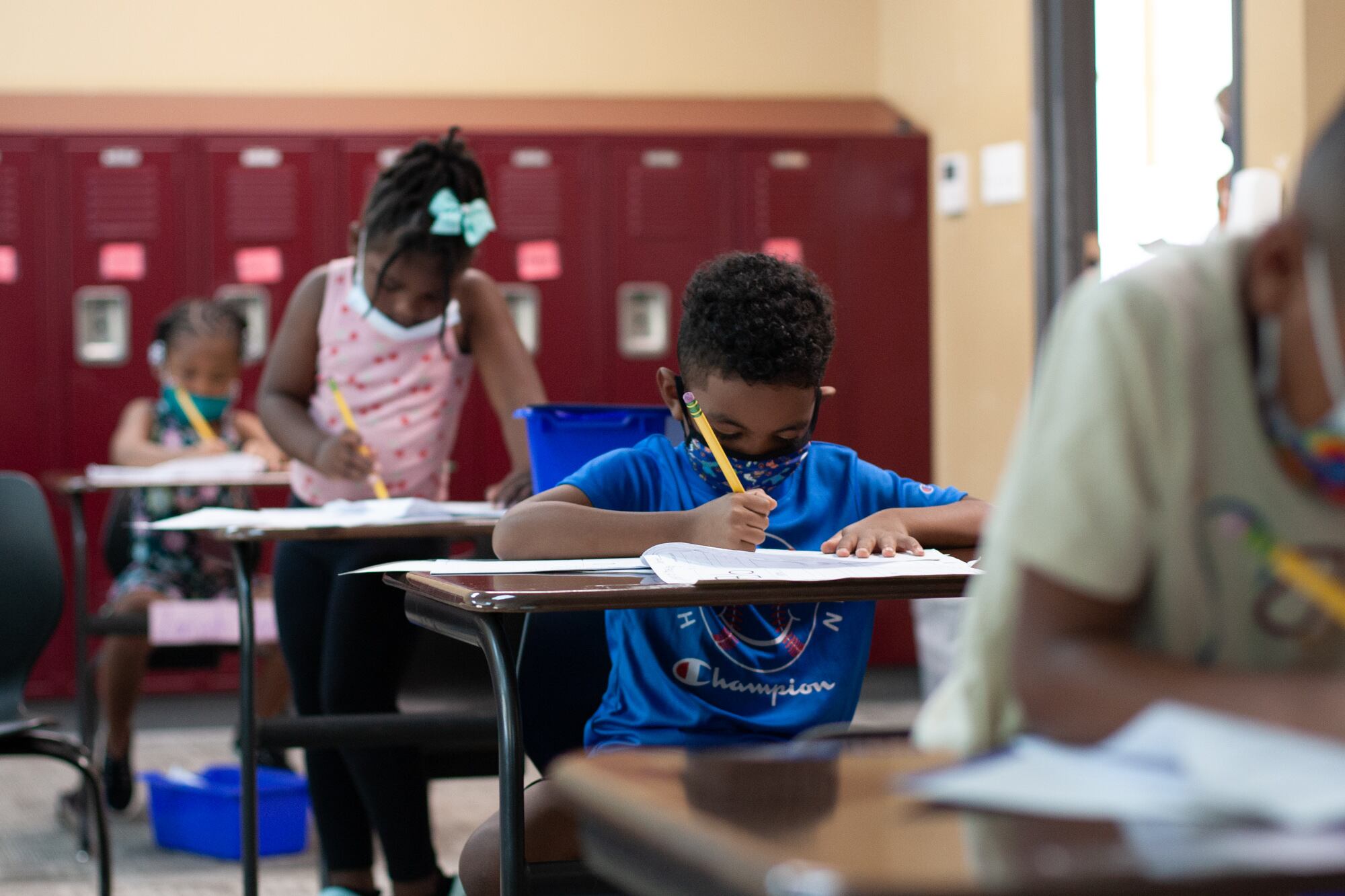Eligible students at six Indiana school districts will be able to access $1,000 for tutoring services beginning Oct. 15, according to a Wednesday presentation from the state department of education.
Several more districts are awaiting clearance to join the state’s new program, known as Indiana Learns, which provides families at least $500 to use toward math and reading tutoring. Districts can provide another $250 for their students that the state will then match, for a total tutoring grant of $1,000.
The tutoring program, first created by House Enrolled Act 1251 in the spring and funded through federal relief dollars, is Indiana’s take on using tutoring to make up for the academic losses of the COVID-19 pandemic — a popular approach nationwide.
It’s open to fourth and fifth graders who qualify for federally subsidized meals and scored below proficiency on both the reading and math portions of the state test, ILEARN. Those students are eligible for the $500 grants from the state even if their school doesn’t match the funds.
“This is a nationally unique program in the way Indiana structured it, so we’re very excited to get started and learn some things in this pilot phase, too,” said Kristin Grimmie, senior vice president of strategy at The Mind Trust, which operates the program.
Beginning on Oct. 15, families can access their accounts at indianalearns.org, where they’ll be able to check their eligibility and the amount of money they’ll receive. They can also use the platform to schedule services with approved providers.
The response to the program in its initial months has been positive, with Secretary of Education Katie Jenner noting that no school district so far has declined the chance to participate. Indiana Learns hopes to have 3,000 students participating and 20 schools matching grants by December 2022 before a wider launch in January. Schools and districts are eligible to match the funds, according to the law.
The school districts that are providing matching grants so far include Gary, Greenwood, Knox, Penn-Harris-Madison, Mishawaka, and Wawasee, according to the state’s presentation.
Seana Murphy, senior director of Indiana Learns, said the three districts that first announced they would match the grant — Indianapolis Public Schools, Muncie, and Decatur Township — are “in the process” of being added to that list.
Murphy said the program currently has 68 additional applications in the queue, from both school districts that wish to participate and private providers seeking to offer tutoring services.
Indiana Learns uses a nine-member committee to approve tutoring providers who wish to participate, according to the presentation to the state Board of Education.
A handful of private providers like Sylvan Learning Centers and Varsity Tutors have already been cleared to provide services under the grants. Some school districts are also providing tutoring services using their own teaching staff, like Knox schools, which will offer in-person tutoring with certified teachers to its 25 eligible students.
Those students will receive a minimum of 20 1-hour tutoring sessions funded by around $6,000 from the district and $19,000 from the Indiana Learns grant.
“This is really giving school corporations additional resources to be able to support those activities,” Grimmie said of the grants.
One challenge will be making families who qualify for the program aware of the funds, especially in larger school districts that serve more students who might qualify.
Grimmie said The Mind Trust will send mailers to students who qualify, as well as encourage schools and teachers to highlight the program during parent-teacher conferences.
Aleksandra Appleton covers Indiana education policy and writes about K-12 schools across the state. Contact her at aappleton@chalkbeat.org.







